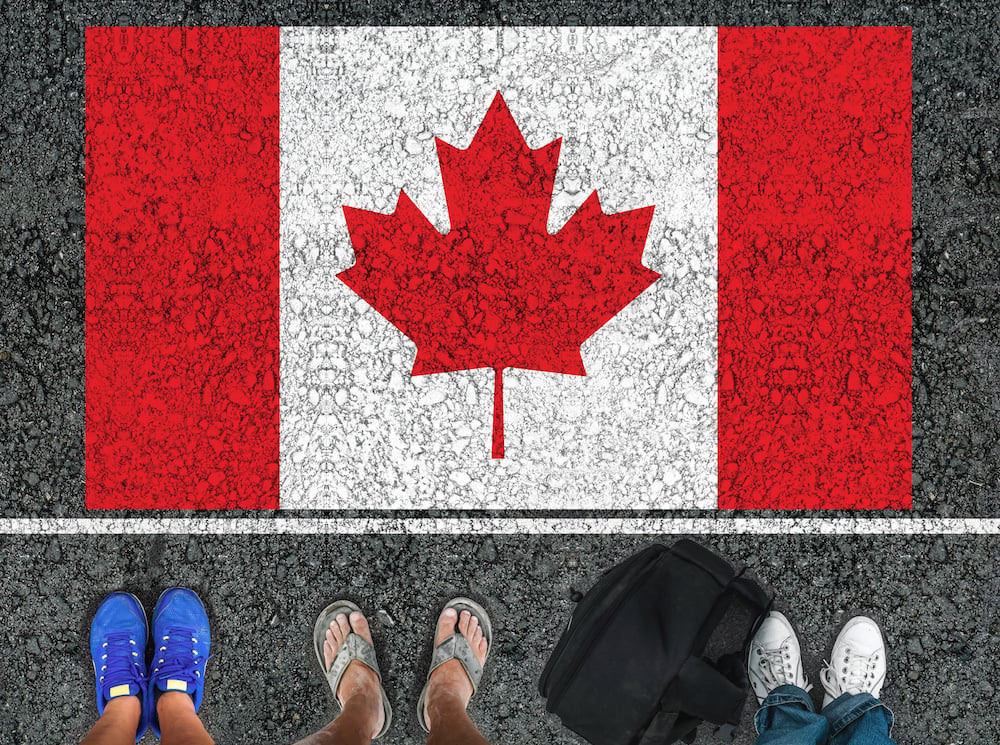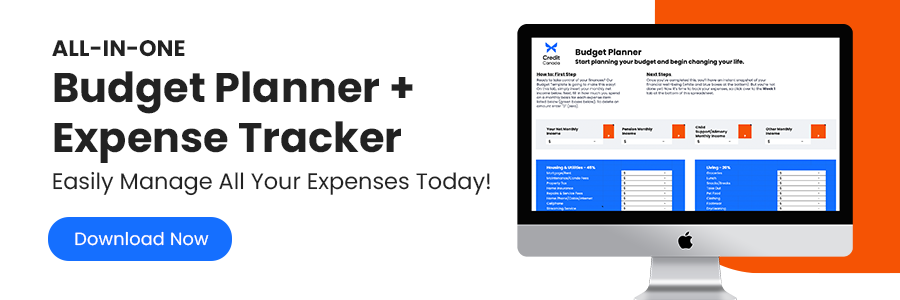
Welcome to Canada! Since the 1970s when Canada officially adopted a policy to promote multiculturalism, the country has been a great destination for immigrants to build a new life. Of course, to be successful in any new country, it’s important to understand the financial system and other money management basics. Thankfully, there are many resources available to help newcomers to Canada, and Credit Canada is proud to be one of them!
Immigrants to Canada By the Numbers
Canada has one of the highest immigration rates per capita among developed nations. In fact, permanent and non-permanent immigration accounts for more than 80% of Canada’s population growth! More than 22% of the Canadian population identifies as a visible minority while nearly 22% were born outside of the country.
Although COVID resulted in some travel restrictions and immigration capacity constraints in 2020, Canada’s Minister of Immigration, Refugees and Citizenship, Marco Mendicino, has announced a plan to welcome about 1.2 million immigrants over the next 3 years between 2021 to 2023. It’s expected that the plan will help the Canadian economy recover from COVID-19, drive future growth, and create jobs for middle-class Canadians.
Who is Considered a Newcomer to Canada?
If someone has immigrated to Canada within the last 5 years, and they are either a permanent resident or has received confirmation of their permanent residency, they are technically considered a newcomer to Canada. However, for income tax purposes, you are no longer considered a newcomer to Canada after your first tax year.
The newcomer to Canada legal definition can include:
- Those who have received their Canadian permanent resident status or have applied to become a permanent resident in Canada.
- Those who have received "approval-in-principle" to stay in Canada from the office of Immigration, Refugees and Citizenship Canada.
- People who are considered "protected persons" (including refugees) under the Immigration and Refugee Protection Act.
If you’re a newcomer to Canada or planning to become one, you’ll want to familiarize yourself with the information on the Government of Canada website for newcomers. Many of the questions you need answers to – such as living arrangements, jobs, schooling, healthcare, and more – can be found there. If you need additional financial support, that’s where we come in.
Getting Started with Canada's Banking System
Canada has a strong financial system and is considered one of the world’s most stable economies according to the World Economic Forum. While there hasn’t been a bank failure since 1996, up to $100,000 of the money you put into a Canadian bank account is automatically protected by the Canada Deposit Insurance Corporation (CDIC), which is a Canadian federal Crown corporation.
It’s also easy to get started with banking in Canada. With proper identification, you’ll be able to:
- Set up chequing and savings accounts
- Use online and mobile banking
- Access automated teller machines (ATMs) and ATM/debit cards
Financial institutions can also help you save and earn money through investments, such as:
- Guaranteed Investment Certificates (GICs), which are temporary investment accounts with higher interest rates than traditional savings accounts.
- Registered Education Savings Plans (RESPs), which can help you save for your child’s post-secondary education.
- Registered Retirement Savings Plans (RRSPs), which are designed to help you save for retirement.
- Registered Disability Savings Plans (RDSPs), which help those with disabilities achieve long-term financial security.
- Tax-Free Savings Accounts (TFSAs), which are non-taxed savings accounts available for your short-term and long-term goals.
How Newcomers to Canada can Obtain Credit
Establishing good credit and a positive credit history is important for anyone who makes Canada their new home. Having good credit lets you borrow money from banks, lease a vehicle, rent an apartment, buy a home, get a business loan, and much more.
Unfortunately, when you immigrate to Canada, your credit score from your home country doesn't move with you. This doesn’t mean you have bad credit – just no credit.
Thankfully, building credit is a lot easier than improving bad credit! To learn more, check out our blog How to Understand Canadian Credit Scores. We’re also available to help you learn more about building good credit through free credit counselling services available at Credit Canada. Just call 1.800.267.2272 to book a free counselling session with one of our certified Credit Counsellors.
In the meantime, you might want to familiarize yourself with some of the different types of Canadian credit you may want to gain access to, such as a line of credit, an installment loan, a small business loan, or a mortgage.
Of course, one of the first orders of business for most newcomers to Canada may be obtaining a credit card. While you can continue to use a credit card from your home country, if you'll need a Canadian loan or mortgage in the future, you’ll receive more favourable terms (such as better interest rates) if you have a Canadian credit history and a good credit score. Many banks will work with newcomers to Canada to help them obtain a credit card (and Credit Canada can help you learn how to use credit cards responsibly).
A word of advice: If you obtain a Canadian credit card, it’s best to pay off the balance in full every month before the due date. Carrying a balance on a credit card month-to-month costs you more money in interest fees.
Start Budgeting and Tracking Expenses Now
Many newcomers to Canada are already careful with their money; to make a successful move to a different country, they often need to be! But if you’re not currently watching your spending, our best piece of advice is to start budgeting and tracking your expenses now.
Using a budget planner will help you not just watch where you spend your money, but also help you set important financial goals. Since newcomers to Canada are just starting to establish themselves financially, budgeting and tracking expenses can be a great tool to start off on the right foot. Tracking expenses can help newcomers avoid debt, cut back on unnecessary spending, and save for things that are truly important to them and their future.
Budgeting can also help newcomers put money aside for an emergency fund or toward investing. To make things easier, we've created a free, downloadable Budget Planner + Expense Tracker with all the instructions included.
New to Canada? Let's Talk!
Canada is the definition of a “melting pot”, where people from all around the world live in harmony while maintaining their unique cultural heritage — it's one of the reasons that make Canada such a great country.
Urban destinations are particularly diverse, and Toronto (a city where over 140 languages are spoken and 200 ethnic groups reside) is frequently referred to as “the most multicultural city in the world.” In fact, around half of the city's population was born outside of the country. This has helped establish Toronto as a hub for some of the best international cuisine. If you're a foodie, Toronto is a must-see.
At Credit Canada, we’re always excited to help newcomers who have decided to make Canada their home. That’s why we’re always here to help with free financial advice and money management support. We encourage you to download our free guide, Newcomers and Money 101.
And as always, our caring and certified Credit Counsellors are available for a free phone or video consultation where you can ask any questions you might have about building good credit, managing your money, and paying off debt. Simply call 1.800.267.2272 to book a free counselling session today. We look forward to speaking with you, and once again, welcome to Canada!

Frequently Asked Questions
Have a question? We are here to help.
What is a Debt Consolidation Program?
A Debt Consolidation Program (DCP) is an arrangement made between your creditors and a non-profit credit counselling agency. Working with a reputable, non-profit credit counselling agency means a certified Credit Counsellor will negotiate with your creditors on your behalf to drop the interest on your unsecured debts, while also rounding up all your unsecured debts into a single, lower monthly payment. In Canada’s provinces, such as Ontario, these debt payment programs lead to faster debt relief!
Can I enter a Debt Consolidation Program with bad credit?
Yes, you can sign up for a DCP even if you have bad credit. Your credit score will not impact your ability to get debt help through a DCP. Bad credit can, however, impact your ability to get a debt consolidation loan.
Do I have to give up my credit cards in a Debt Consolidation Program?
Will Debt Consolidation hurt my credit score?
Most people entering a DCP already have a low credit score. While a DCP could lower your credit score at first, in the long run, if you keep up with the program and make your monthly payments on time as agreed, your credit score will eventually improve.
Can you get out of a Debt Consolidation Program?
Anyone who signs up for a DCP must sign an agreement; however, it's completely voluntary and any time a client wants to leave the Program they can. Once a client has left the Program, they will have to deal with their creditors and collectors directly, and if their Counsellor negotiated interest relief and lower monthly payments, in most cases, these would no longer be an option for the client.







